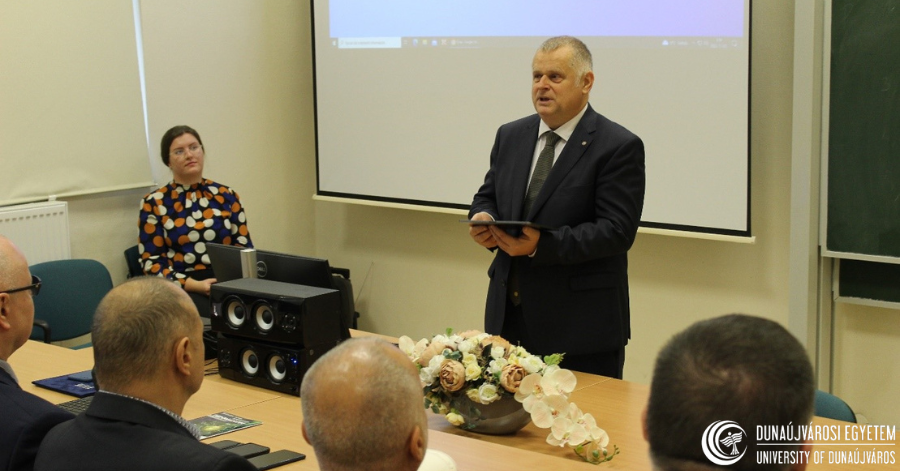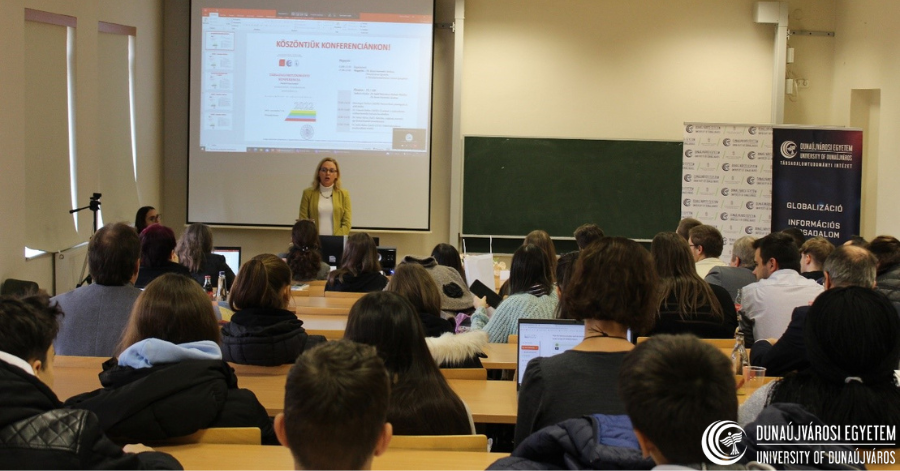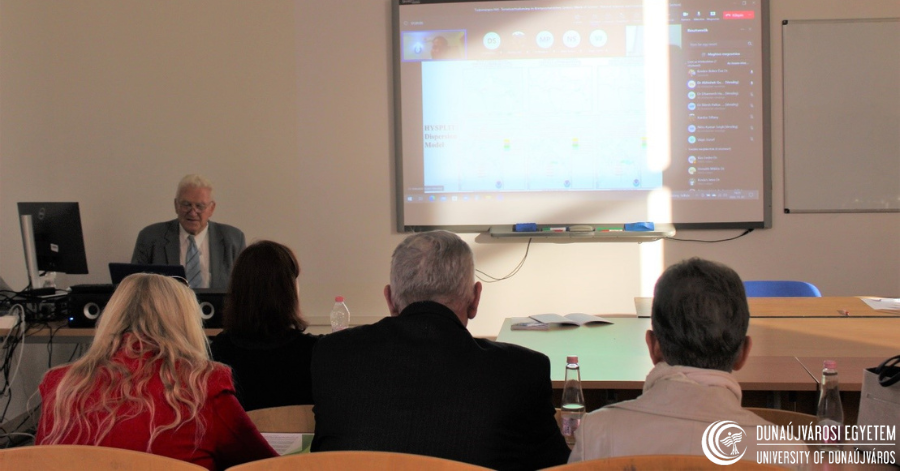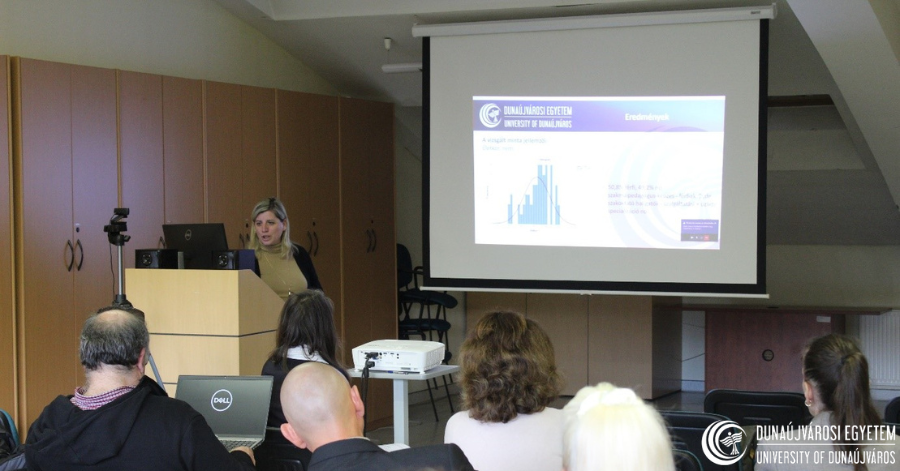On Monday, the 2022 Science Week kicked off at the University of Dunaújváros. The following article serves as a summary of the first day.
The series of events, which runs from 7 to 10 November 2022 under the motto "Secure Energy, Energy Security", started with the Plenary Session, which was opened by Pál Kovács, Deputy President of the Hungarian Energy and Utility Regulatory Office, followed by a welcome speech by Dr. István András, Rector of the University of Dunaújváros. In his presentation, he briefly outlined the main results of the recent DUE-PKK project, which enabled the establishment of the Paks Competence and Research Centre of the University of Dunaújváros.

Pál Kovács, Vice President of MEKH, responsible for energy, opened the University of Dunaújváros Week of Science.
Following the Plenary Session, the Week of Science, which is also linked to the Hungarian Science Week 2022, offered three further scientific lectures on Monday:
From 13:00, the University of Dunaújváros and the Hungarian National Bank, in the framework of the cooperation of the "University Network for Sustainable Development" Horizontal Programme, organised an international conference entitled "Renewable Economics". In the plenary session on sustainable finance and change management, Dr. Márta Nárai presented the activities and actions needed for a more sustainable society.

Dr. habil Mónika Rajcsányi-Molnár (Vice Rector for Institutional Development and General Rector of the University of Dunaújváros), one of the Chairpersons of the Institute of Social Sciences Section, welcomed the participants.
From 14.00, in the care of the Institute of Engineering Sciences, The Natural Sciences and Environment Section, chaired by Dr. Endre Kiss, Executive Chair, featured a wide range of technical and environmental topics: In addition to climate protection and the current situation of air pollution in Dunaújváros, the participants were able to hear about the chemical approach to catalysts and chemically bonded hydrogen, and phytoextraction experiments with converter sludge, and also discussed how to raise interest in the science of physics.

Before the hybrid lecture of the Institute of Engineering Sciences, Dr. Endre Kiss, College Professor opened the Natural Sciences and Environment Section.
The Teacher Training Centre's session on "Pedagogy for a Secure Future" touched on issues related to and affecting the actors involved in 21st century education, such as what universities can do to help students succeed in their careers, and the role and potential of robots in the education of people with learning disabilities. The presentations also indicated the impact of digitalisation, which is becoming an integral part of everyday life, the classification of online risks, and the possibility of two of the key players in education, the teacher and the student, meeting in the classroom or online, and how to approach the impact of this from different angles.
In the second session, the role of sustainable goals, education for sustainability and "Green classrooms" were presented, alongside interesting facts related to the city, such as the schools of the Stalinist workers in 1951-61. The session covered the broadest possible spectrum of topics on education and childcare, from early parenting, to presentations on the role of education in pedagogy, space exploration and virtual reality.

Dr. Anetta Bacsa-Bán, Director General of the Teacher Training Centre, gave a presentation entitled "Motivating and/or socialising - training professional teacher trainees in the 21st century".
The Plenary Session and the session presentations were implemented under the Thematic Programme of Excellence 2020 (2020-4.1.1-TKP2020).
The institutions delivered all their presentations in a hybrid format, meaning that their in-person presentations could be followed online via Microsoft Teams.
We are looking forward to welcoming you all at the Career Day on Wednesday!


